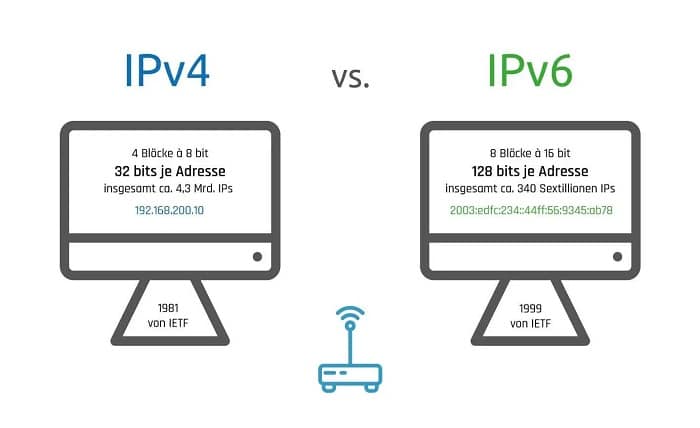The Future of Networking in Belgium: IPv6 vs. IPv4

The internet is changing fast, and how we connect to it is a big deal for businesses in Belgium. The debate between IPv6 and IPv4 is at the center of this discussion. IPv4 has been the go-to for years, but it’s showing its age. IPv6 is the newer version of the Internet Protocol, and it’s set to change networking in a big way.
It’s got a way bigger address space, better security, and is way more efficient.
In this article, we’ll break down the differences between IPv6 and IPv4, explain why IPv6 is the future of networking in Belgium, and give businesses a heads-up on why they should make the switch ASAP.
Understanding IPv4: The Backbone of the Early Internet
IPv4, or Internet Protocol version 4, has been the standard for routing traffic on the Internet since the early 1980s. It was designed to connect devices across a global network, giving each device a unique address so they could talk to each other.
- The Rise of IPv6: Why It’s Essential for the Future: IPv6, or Internet Protocol version 6, was created to fix the problems with IPv4. It’s got a huge address space, and built-in security features, and is overall more efficient. IPv6 is poised to become the foundation of the internet for years to come.
- Why IPv6 is Crucial for Belgian Businesses: For businesses in Belgium and worldwide, the limitations of IPv4 can stifle innovation. As new technologies like IoT, cloud computing, and 5G emerge, the need for a stronger and more scalable network protocol becomes clear. The shortage of IPv4 addresses has also led to higher costs for businesses.
- Embracing IPv6 for a Future-Proof Network: To stay ahead of the curve, businesses should consider making the switch to IPv6. It’s the future of networking, and it’s got a lot of benefits. IPv6 gives businesses a bigger address space, better security, and improved network efficiency. It’s also future-proof, so businesses can be sure that their networks will be ready for whatever comes next.
Comparing IPv6 and IPv4: Key Differences
To understand why IPv6 is the future of networking, it’s important to compare it directly with IPv4. Here’s a breakdown of the key differences:
| Feature | IPv4 | IPv6 |
| Address Space | 32-bit (4.3 billion addresses) | 128-bit (340 undecillion addresses) |
| Security | Add-on (IPsec optional) | Built-in (IPsec mandatory) |
| Routing | Complex and growing | Simplified with smaller routing tables |
| Auto-Configuration | Limited support | Full support with SLAAC |
| Performance | Slower with large routing tables | Faster with streamlined routing |
| NAT Requirement | Necessary due to limited addresses | Not needed due to vast address space |
| Scalability | Limited by address space and complexity | Virtually unlimited scalability |
This comparison highlights why IPv6 is better suited for the future of networking, particularly in a rapidly advancing digital economy like Belgium’s.
To All Belgium Businesses!
Remember this: IPv6 isn’t just some fancy tech upgrade—it’s a game-changer you can’t afford to miss. Here’s the lowdown on why (If you haven’t gone though the previous sections of this article):
- Scale like a boss: With IPv6, you won’t have to stress about running out of IP addresses. Whether you’re expanding to new places, launching cool new products, or connecting IoT devices, IPv6 has got you covered.
- Innovation Unleashed: Belgium is known for its awesome industries, from tech to healthcare. IPv6 is like rocket fuel for new technologies like smart factories, connected vehicles, and digital healthcare solutions. Get ready to take your innovation to the next level.
- Built-in Security Shield: Cybersecurity is a real headache, especially if you’re dealing with sensitive data. IPv6 comes with IPsec built right in, so you can beef up your defenses against those pesky cyber threats.
- Stay Ahead of the Law: The European Union and other regulatory bodies are saying “IPv6 or bust.” If you’ve already made the switch, you’ll be ahead of the curve, avoiding fines and last-minute headaches.
- Streamline Your Operations: Ditch NAT and say goodbye to complex network management. IPv6 can slash your operational costs, especially if you have a big, complicated network.
- Long-Term Savings Galore: There might be some upfront costs for making the switch to IPv6, but trust me, it’s worth every penny. You’ll save money in the long run by reducing complexity and boosting efficiency.
Prepare for the Future, Like a Time Traveler:
If you don’t switch to IPv6, your network will be left in the dust. You’ll miss out on awesome benefits like increased security, faster speeds, and more address space for all the devices that will be connected to the internet in the future.
In today’s world, businesses need to stay ahead of the tech curve to stay competitive. Adopting IPv6 shows your customers and partners that you’re forward-thinking and innovative. It also ensures your business is ready for the future.
To prepare for the future with IPv6, you should:
- Assess your current network: Figure out whether your network is ready for IPv6. You can do this yourself with an online tool or get help from a network engineer.
- Develop a migration plan: Once you know where your network stands, create a plan for migrating to IPv6. Include a timeline and budget for hardware and software upgrades.
- Implement your migration plan: Once you have a plan, start implementing it. It might take some time, so be patient and thorough.
By following these steps, you can get your network ready for the future and make sure your business is ready to enjoy all the benefits of IPv6.
Final Words: Embrace IPv6 and Build a Network That’s Ready for Anything
The future of networking in Belgium, and the whole wide world, belongs to IPv6. IPv4 has served us well, but it’s starting to show its age. IPv6 is the solution we need for growth, innovation, and security in the digital era.
For Belgian businesses, the choice is clear—transitioning to IPv6 isn’t just about keeping up—it’s about getting a leg up on the competition, beefing up security, and making sure your operations are ready for the future. So, whether you need to rent IPv6 addresses for a project, lease them long-term, or tap into IPv6 rental services to expand your network, now’s the time to make the switch.
By embracing IPv6, you’re not just preparing for the future—you’re shaping it. Start planning your transition today and get your business ready to thrive in the digital world of tomorrow.




